Clinical Templates
-

Corporate Letterhead
Spill The Tea Cafe letterhead to be used for any official written communication.
-

Court Letter
Please make a copy of this letter to produce a customized letter to a third-party judiciary contact or organization.
-

Student Focus Team Request Letter
A Student Focus Team (SFT) meeting request form is a document used by parents, teachers or behavioral health specialists to formally request a meeting with a school-based team to address a student's educational, behavioral, or emotional concerns. The form initiates a process that involves collaborating with a team of school staff to develop a plan for student support.
-

Emotional Support Animal (ESA) Letter
What is an ESA Letter? An ESA letter for a dog is a document provided by a licensed mental health professional that confirms a person has a mental or emotional health condition and that their dog provides necessary emotional support as part of their treatment. This "prescription" allows the individual to live with their dog in housing that might otherwise have "no-pet" policies or charge pet fees, under the Fair Housing Act (FHA). A legitimate ESA letter includes the individual's name, confirmation of their qualifying condition, and the provider's credentials, but does not share specific diagnoses
-
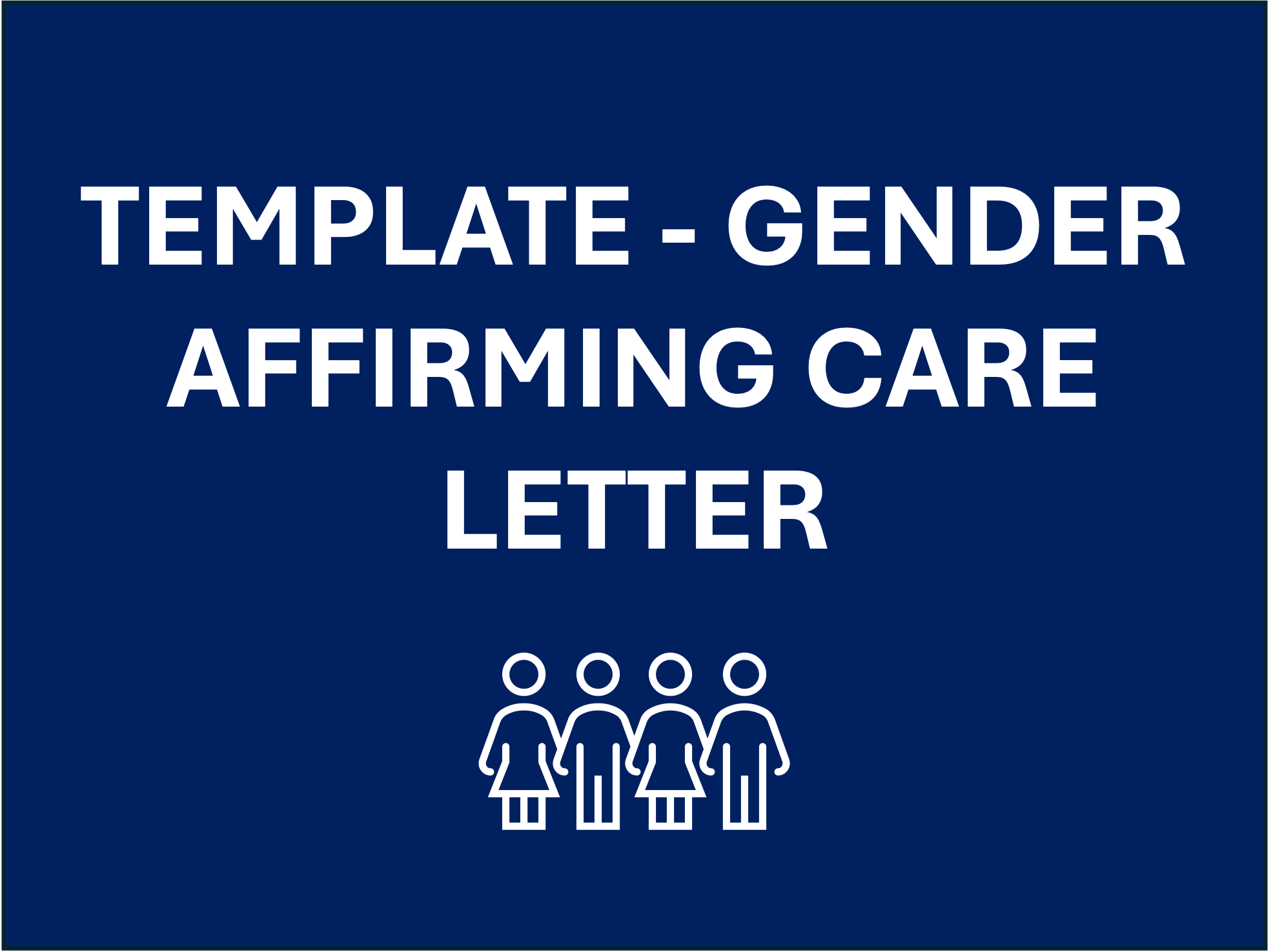
Gender Affirming Care Letter (Non-Surgery)
A non-surgical gender affirming care letter is a document from a mental health or other qualified healthcare provider that affirms a person's gender identity and their readiness for non-surgical gender-affirming treatments like hormone therapy or blockers. These letters are often required by insurance companies to approve coverage or by providers to ensure the individual understands the treatment and its potential effects. The letter typically includes the patient's affirmed name and pronouns, their gender identity, and confirmation of their capacity to make informed medical decisions regarding their treatment.
-

Gender Affirming Care Letter (Surgery)
A surgical gender-affirming care letter is a required document from a mental health professional for most gender-affirming surgeries, confirming the patient is mentally, emotionally, and socially prepared for the procedure and its lifelong implications. The letter, often called a "Letter of Readiness" or "Surgery Readiness Letter," documents persistent gender dysphoria, informed consent, and the patient's stability and capacity to make complex decisions, which is crucial for insurance coverage and surgeon approval.
-
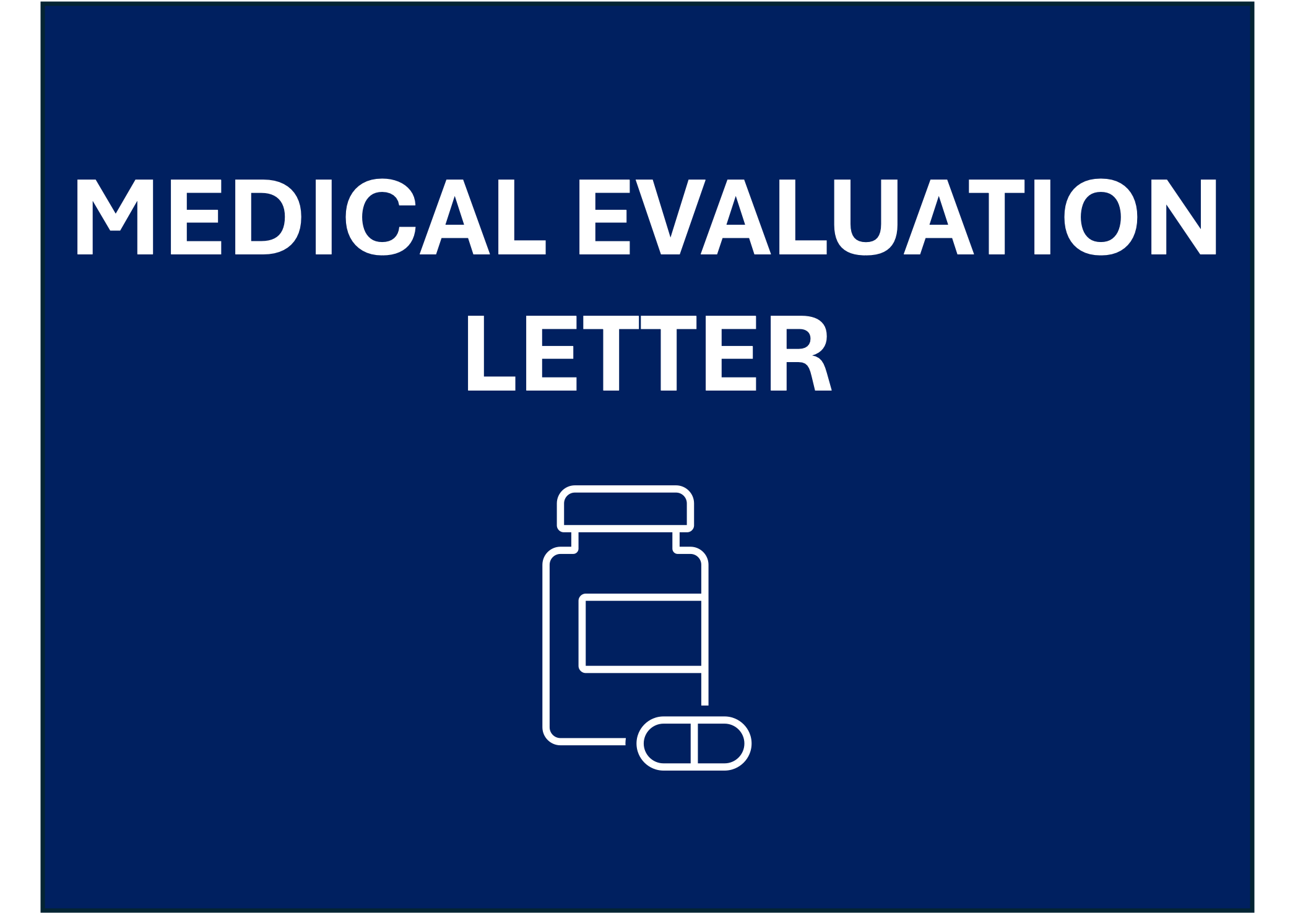
Medical Evaluation Letter
A therapist medical evaluation letter is a formal document written by a mental health professional that provides an assessment of a patient's psychological state. It is often used to support a patient's claims for legal matters, insurance coverage, or accommodations.
-
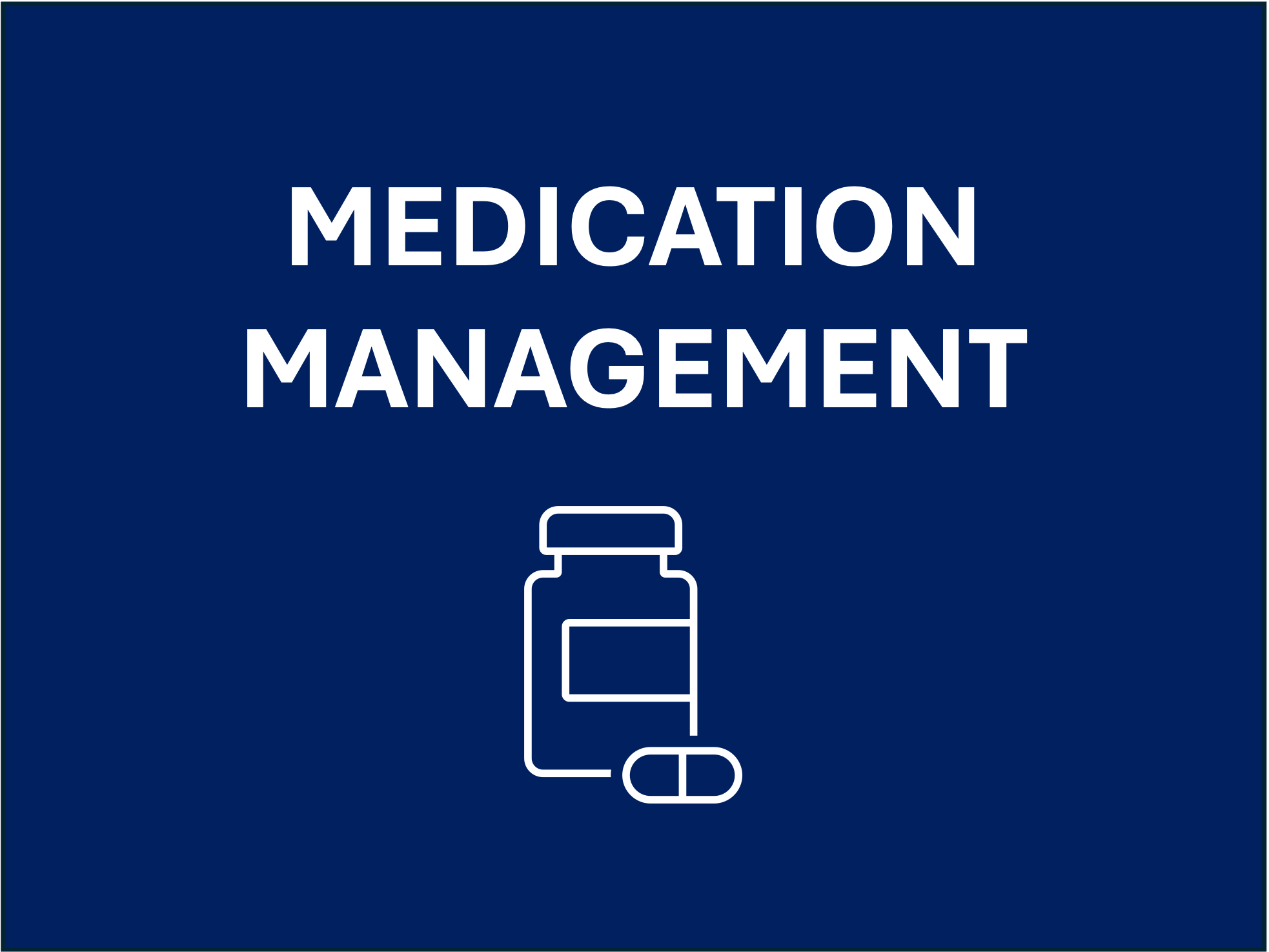
Medication Management
A therapist medication management letter isn't a formal type of document, but rather a communication from a therapist (often a psychiatrist or clinical psychologist) to another provider, such as a primary care physician or a client's family, that informs them about the patient's medication status, how it relates to their treatment, and the therapist's recommendations for its use. These letters are common in mental health treatment to ensure comprehensive care, especially when medication management is part of the overall treatment plan.
-
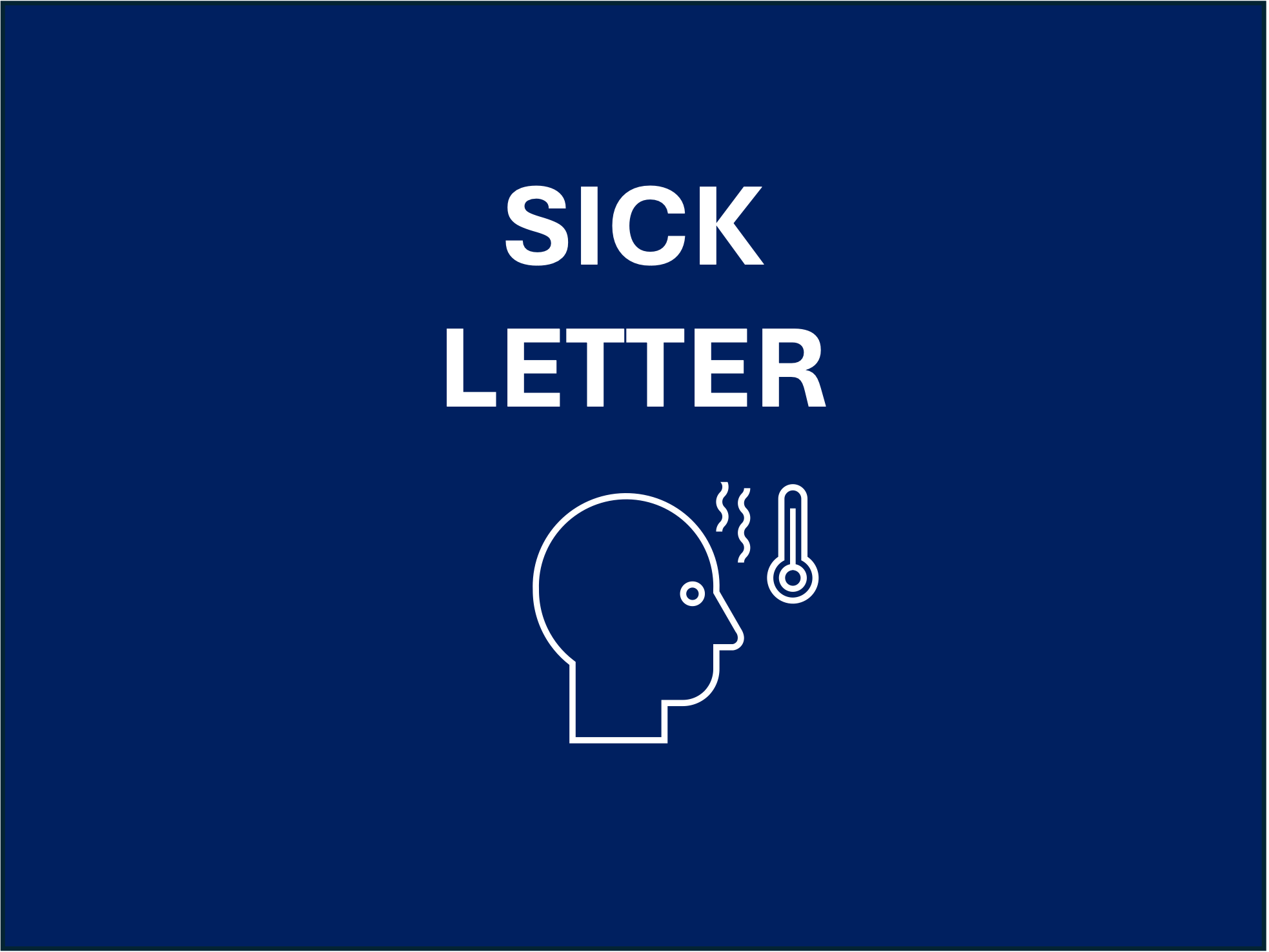
Sick Letter
A therapist "sick letter" is an official letter from a mental health professional, like a therapist or psychologist, that confirms a client needs time off for mental health treatment or recovery. The letter typically serves as verification of the client's care, requests a leave of absence for medical reasons, and provides specific dates without revealing sensitive diagnostic information, protecting client confidentiality while meeting employer or school requirements.
-

Name Change
A therapist name change letter refers to the formal communication a therapist sends to clients, colleagues, and other parties to announce a change in their professional name, which is distinct from a client's request to change counselors or the internal process of the therapist changing their name legally. Therapists use these letters to inform their network about a new first name or, less commonly, a professional alias, providing necessary details about their practice and a clear call to action for how to address them moving forward.
-

Custody Letter Template
A Therapist Custody Letter is a formal communication provided by a mental health professional to clarify the therapist’s role and boundaries in matters involving custody or legal disputes. This letter verifies that a child or youth is engaged in therapy and outlines the limits of the therapist’s involvement—specifically stating that the therapist cannot provide opinions, recommendations, or evaluations regarding custody or parenting arrangements. Its purpose is to confirm participation in treatment, protect the therapeutic relationship, and direct legal parties to the appropriate channels (such as a court-appointed custody evaluator) for custody-related determinations.
Simple Practice Intake Forms
-

Intake Form
A therapist intake form is the initial document clients complete before starting services. It gathers background information such as personal history, presenting concerns, emergency contacts, and insurance details. This form helps the therapist understand the client’s needs and tailor the first sessions accordingly.
-

Notice of Privacy Practices
A notice of privacy practices is a required document that explains how a therapist or mental health clinic uses, stores, and protects a client’s health information. It outlines client rights under HIPAA (such as the right to access records) and details the circumstances under which information may be shared.
-

Practice Policies
A practice policies form outlines the therapist’s or clinic’s guidelines for treatment. It typically includes scheduling and cancellation rules, payment expectations, communication boundaries, and confidentiality practices, ensuring clients understand what to expect and how the practice operates.
-
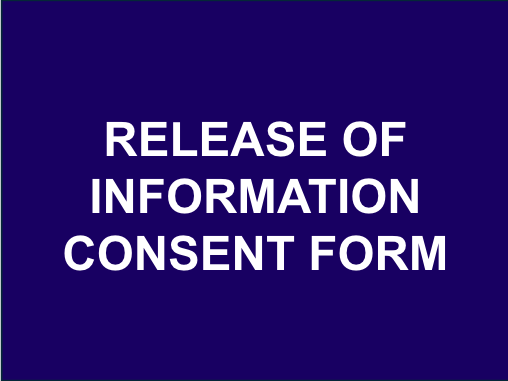
Release of Information Consent
A release of information consent form authorizes a therapist to share specific details about a client’s treatment with designated individuals or organizations. It ensures that information is only disclosed with the client’s permission and for a defined purpose, maintaining confidentiality while allowing coordination of care.
-
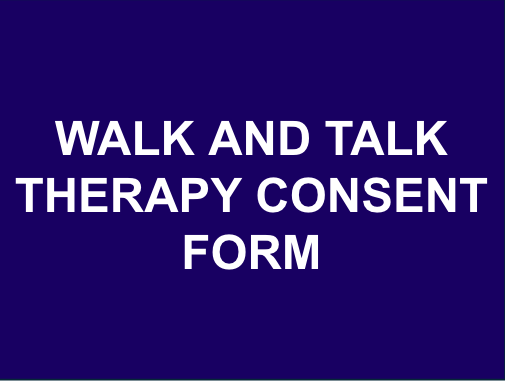
Walk and Talk Therapy Consent Form
A walk and talk consent form is a specialized agreement that explains the risks, benefits, and boundaries of conducting therapy sessions outdoors while walking. It addresses issues like confidentiality in public spaces, weather conditions, and safety, ensuring clients understand and consent to this style of therapy.
-
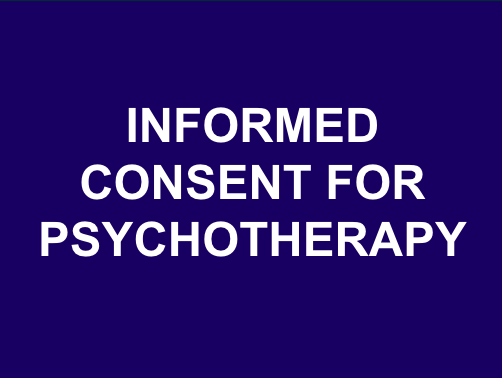
Informed Consent for Psychotherapy
An informed consent for psychotherapy form outlines the nature, goals, risks, and benefits of therapy. It ensures clients understand their rights and responsibilities, the limits of confidentiality, and the therapist’s qualifications, creating a clear foundation for the therapeutic relationship.
-
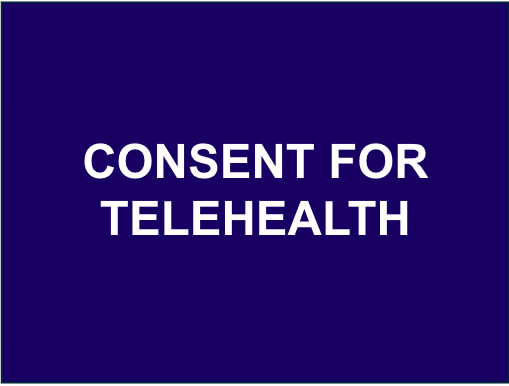
Consent for Telehealth
A consent for telehealth form authorizes a therapist to provide services via secure video or phone sessions. It explains the benefits and limitations of telehealth, addresses technology requirements and risks to confidentiality, and ensures clients agree to participate in virtual care.
-
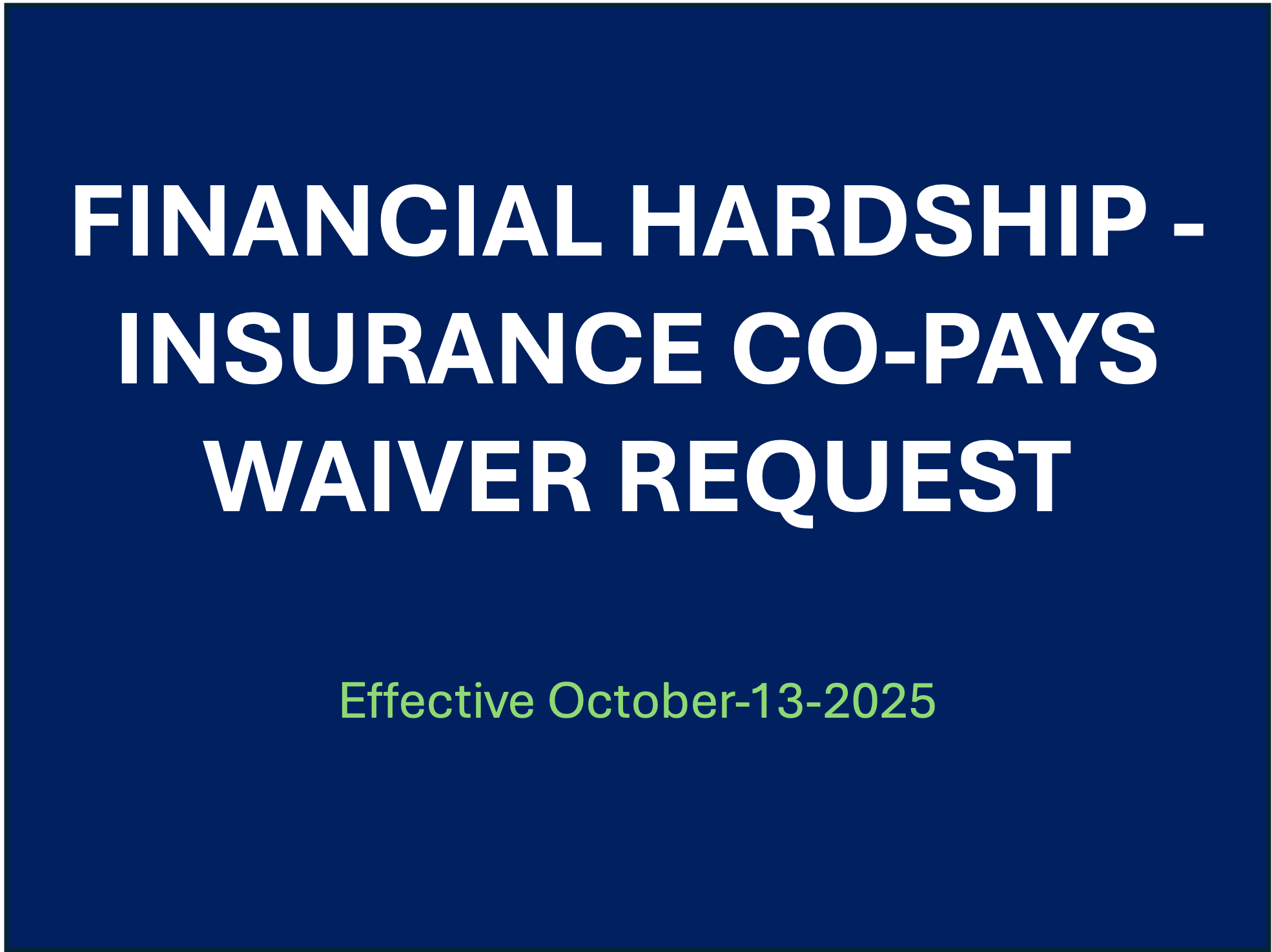
Financial Hardship Co-Pay Waiver Request Form
EFFECTIVE OCTOBER-13-2025, any new patient requesting a waiver of insurance co-pays must fill out this form to substantiate financial hardship. Note that this form is in SimplePractice and can be sent to client as digital form as part of intake.
-

Safety Plan
A personalized, step-by-step guide developed with a client to identify warning signs, coping strategies, supportive contacts, and crisis resources. It is designed to reduce risk during times of distress and to promote client safety both in and outside of sessions.
Screeners & Assessments
-

PHQ-9
A brief, standardized screening tool for depression that helps providers measure symptom severity and monitor changes over time. Clients self-report their experiences over the past two weeks.
-

GAD-7
A short, validated questionnaire that screens for symptoms of generalized anxiety. Clients rate their symptoms to help providers assess severity and track progress during treatment.
-

Adolescent Questionnaire
A youth-friendly intake form designed to capture the perspectives of adolescent clients directly. It covers mental health, school, relationships, and daily stressors to ensure treatment is tailored to the unique needs and voice of each young person.
-
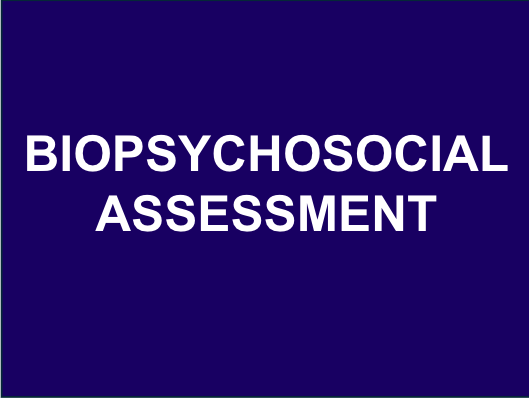
Biopsychosocial Assessment
A structured evaluation that explores the client’s biological, psychological, and social history to inform treatment planning. It helps providers understand the client’s overall functioning, identify contributing factors to their mental health concerns, and develop a holistic care approach. Clients share details about their medical background, mental health history, family dynamics, social supports, and current stressors.
Care Coordination
-

DAP Documentation Guidelines
The Documentation Policy establishes standards for accurate, timely, and professional record-keeping of all client interactions at Spill The Tea Café (STTC). It ensures accountability, continuity of care, and effective collaboration among interdisciplinary team members. Care Coordinators (CCs) are required to document all client-related activities in Simple Practice EMR within 72 hours using the DAP (Data, Assessment, Plan) format. This policy promotes clear, objective, and clinically sound documentation that reflects each client’s progress, needs, and goals while adhering to ethical and confidentiality standards.
-

Care Coordination Service Agreement
A Care Coordination Agreement at Spill The Tea Café outlines how clients and care coordinators work together to support wellbeing through a client-centered approach. It defines the coordinator’s role in connecting clients to services, maintaining communication across care teams, and protecting confidentiality. The agreement also clarifies that participation is voluntary and that care coordinators do not provide clinical or crisis services.
-
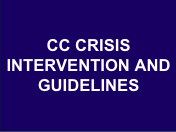
Care Coordination Crisis Intervention and Guidelines
Crisis Intervention Guidelines outline the required steps Care Coordinators (CCs) at Spill The Tea Café must take when a client is at imminent risk of harm to themselves or others. These guidelines ensure immediate, coordinated response through emergency services, family contact, and supervisor notification to protect client safety. They detail procedures for contacting 911, fulfilling duty to warn, and supporting clients during emergency room evaluations or hospitalizations. The goal is to promote consistency, safety, and accountability across all high-risk situations.
-
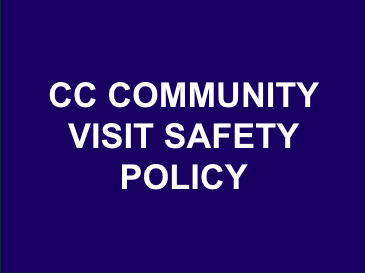
Care Coordination Community Visit Guidelines
The Community Visit Safety Policy establishes clear procedures for conducting home and community visits to ensure the safety of Care Coordinators (CCs) and the protection of client rights. It outlines risk assessment steps, supervisor approval requirements, and professional conduct standards during visits. The policy also provides guidance for handling unsafe situations, maintaining confidentiality, and respecting client dignity and privacy. Additionally, it defines reimbursement procedures for food, beverages, and mileage incurred during approved community visits.
-

Initial Care Plan
The Initial Care Plan is a comprehensive assessment tool used by Care Coordinators (CCs) at Spill The Tea Café to identify a client’s needs, strengths, and goals across multiple life domains. It guides collaborative planning between the client, care coordinator, and interdisciplinary care team to promote holistic wellness and culturally responsive care. The form documents relevant medical, social, educational, and personal factors influencing the client’s wellbeing and outlines action steps to support goal achievement. This plan serves as the foundation for ongoing coordination, monitoring, and review throughout the client’s care journey.
